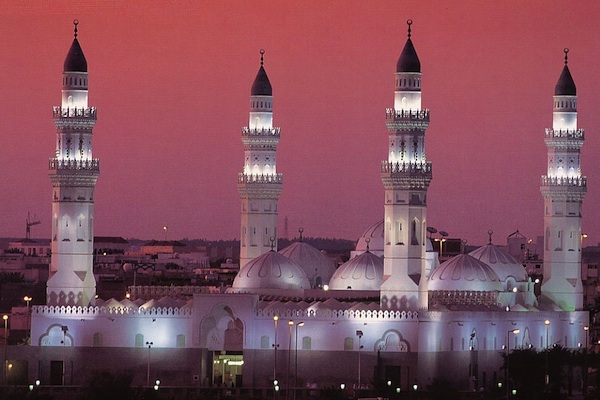
The following was made available by Ustadh Amin Buxton (Allah preserve and increase him):
We are about to enter the blessed month of Dhu`l-Hijjah. The Messenger of Allah (peace and blessings be upon him) informed us that there are no days in which righteous actions are more beloved to Allah than the first ten days of this month.[1] For that reason some scholars have ruled that these days are better than the final ten days of Ramadan, although the nights of Ramadan are superior to these nights. Allah Himself swears by “the Ten Nights” in Surat al-Fajr, which is sufficient evidence of their greatness. Most of the scholars say that these are the first ten nights (and days) of Dhu’l-Hijjah.
The Prophet (peace and blessings be upon him) said that fasting one of these days is equal to the reward of fasting for a whole year and standing in one of these nights in prayer is equal to standing in prayer on Laylat al-Qadr.[2] It has also been narrated that the reward for actions in these days is multiplied seven hundred times.
This is not to mention the Day of Arafat (the 9th of Dhu’l-Hijja) which is the greatest day of the year. Fasting that day wipes out the sins of the previous year and the year to come. We will mention more about this day closer to the time inshallah.
If we are unable to fast the first nine days of the month we should at least fast the Day of Arafat. If we are able to fast two or three days then by fasting Monday or Thursday or both we will gain the reward of following the Sunnah. Likewise by fasting three of these days we will have performed the Sunnah of fasting three days in every month.
These are days in which we should remember Allah abundantly. Allah says that they remember the name of Allah on well-known days.[3] These “well-known days” according to the majority of scholars are the ten days of Dhu’l-Hijjah. This is why the Prophet said (peace and blessings be upon him) that in these days we should make abundant tahlil (saying la ilaha ill’Allah), takbir (saying Allahu akbar) and tahmid (saying alhamdulillah).[4] Ibn `Umar and Abu Hurayra would go into the marketplace in these days and raise their voices with the takbir. The people in the marketplace would then raise their voices with the takbir in response.[5] Thus the most hated place to Allah, a place where most people are heedless of Him, was filled with His remembrance.
Whether it be prayer, fasting, charity, dhikr, seeking knowledge, helping people, any righteous actions we do will be greatly rewarded and beyond that are beloved to Allah. This is also a time when du’a is answered by Allah.
As winter approaches in the Northern Hemisphere we recall that the Messenger of Allah (peace and blessings be upon him) said that winter is like spring for a believer: the night is long so he is able to stand in prayer in it, and the day is short so he is able to fast during it.[6] Just as the animals find good pasture with the coming of springtime, likewise in winter the believer finds it easy to perform acts of obedience and to pluck the fruits that Allah has made easily available.
These are days when people are converging in their hundreds of thousands to visit the House of Allah and to visit His beloved Messenger (peace and blessings be upon him) and there is nothing to stop anyone who cannot be physically with them from trying to draw close to Him and seeking the closeness of His Messenger. Allah tells us that He is with us and remembers us when we remember Him, and whenever we send greetings to the Beloved Prophet (peace and blessings be upon him) he receives them and returns them.
Attached should be some of the adhkar that many of the pious people would read during the first ten days of Dhu’l-Hijjah.
[1] Narrated by al-Bukhari, Abu Daud, al-Tirmidhi and Ibn Majah
[2] Narrated al-Tirmidhi and Ibn Majah
[3] Al-Hajj, 22.28
[4] Narrated by Imam Ahmad
[5] Narrated by al-Bukhari
[6] Narrated by al-Bayhaqi



